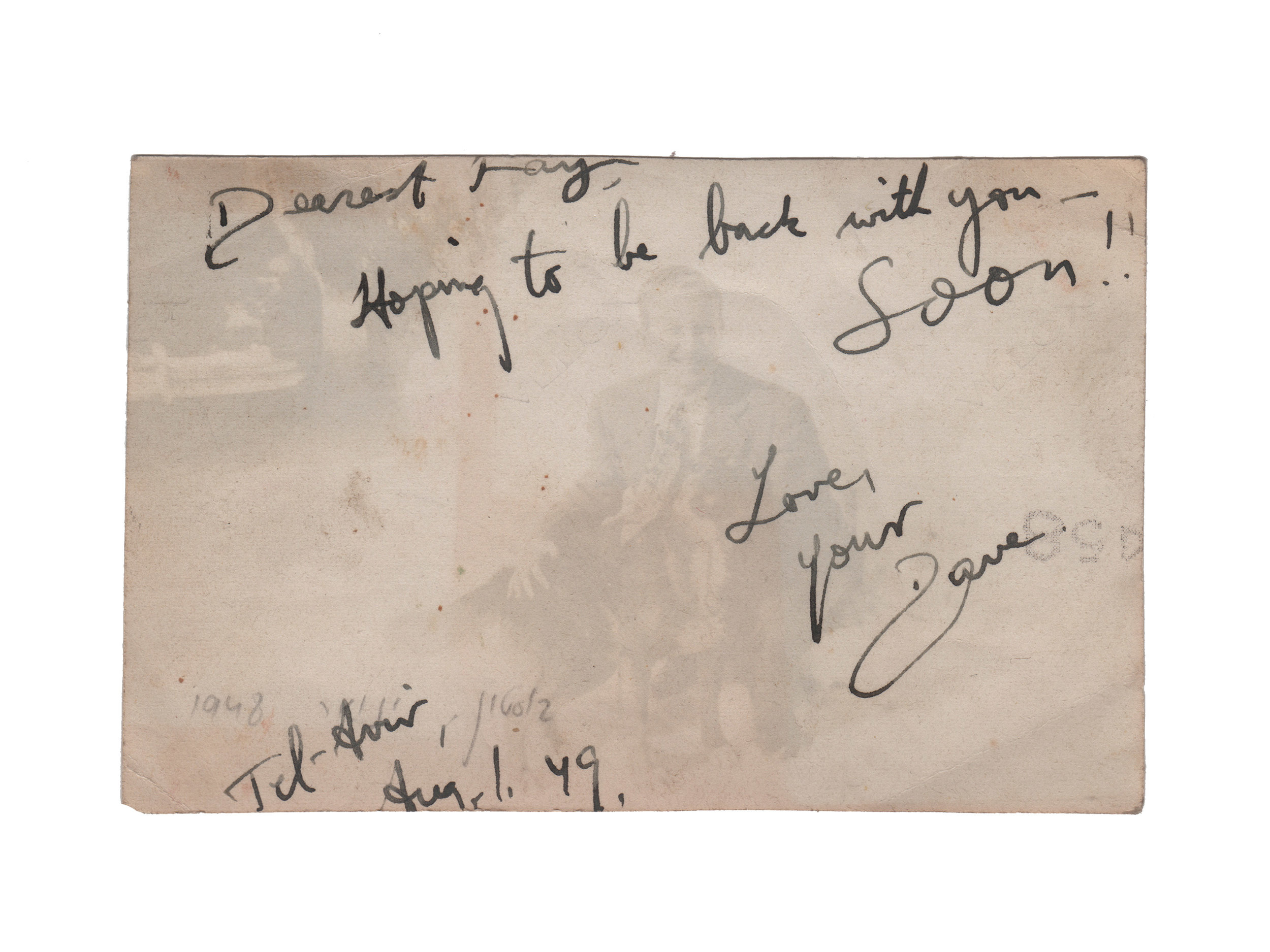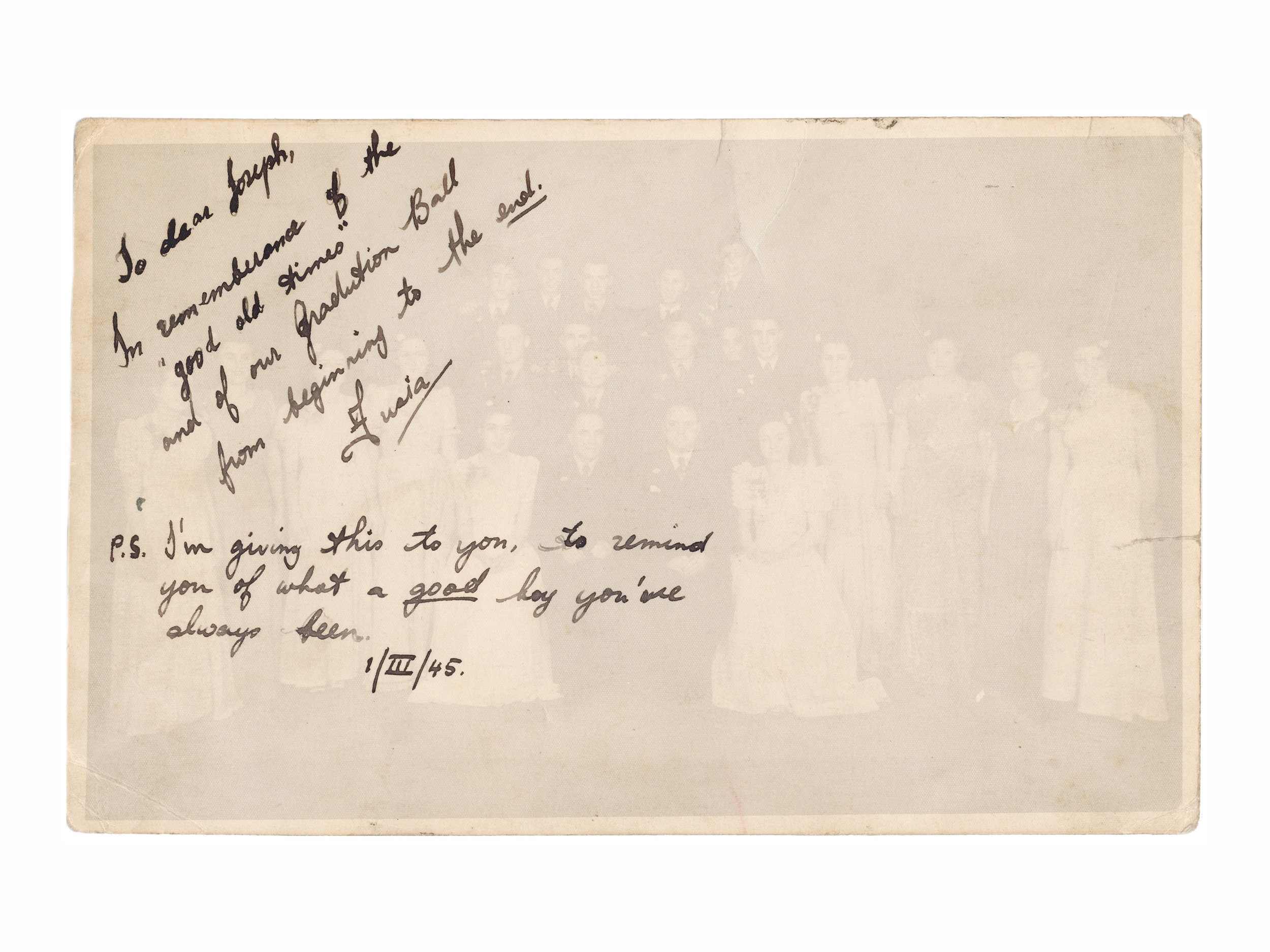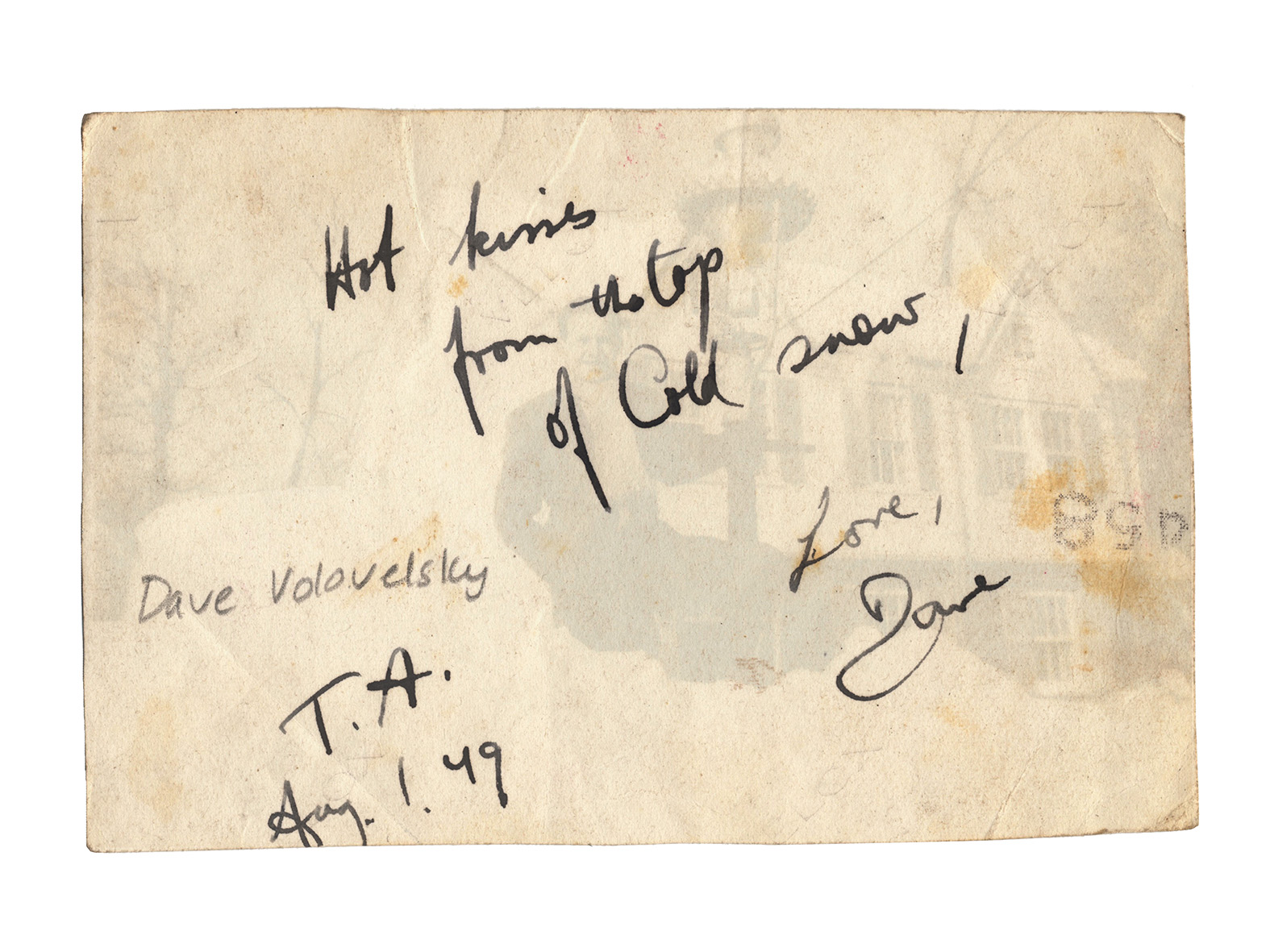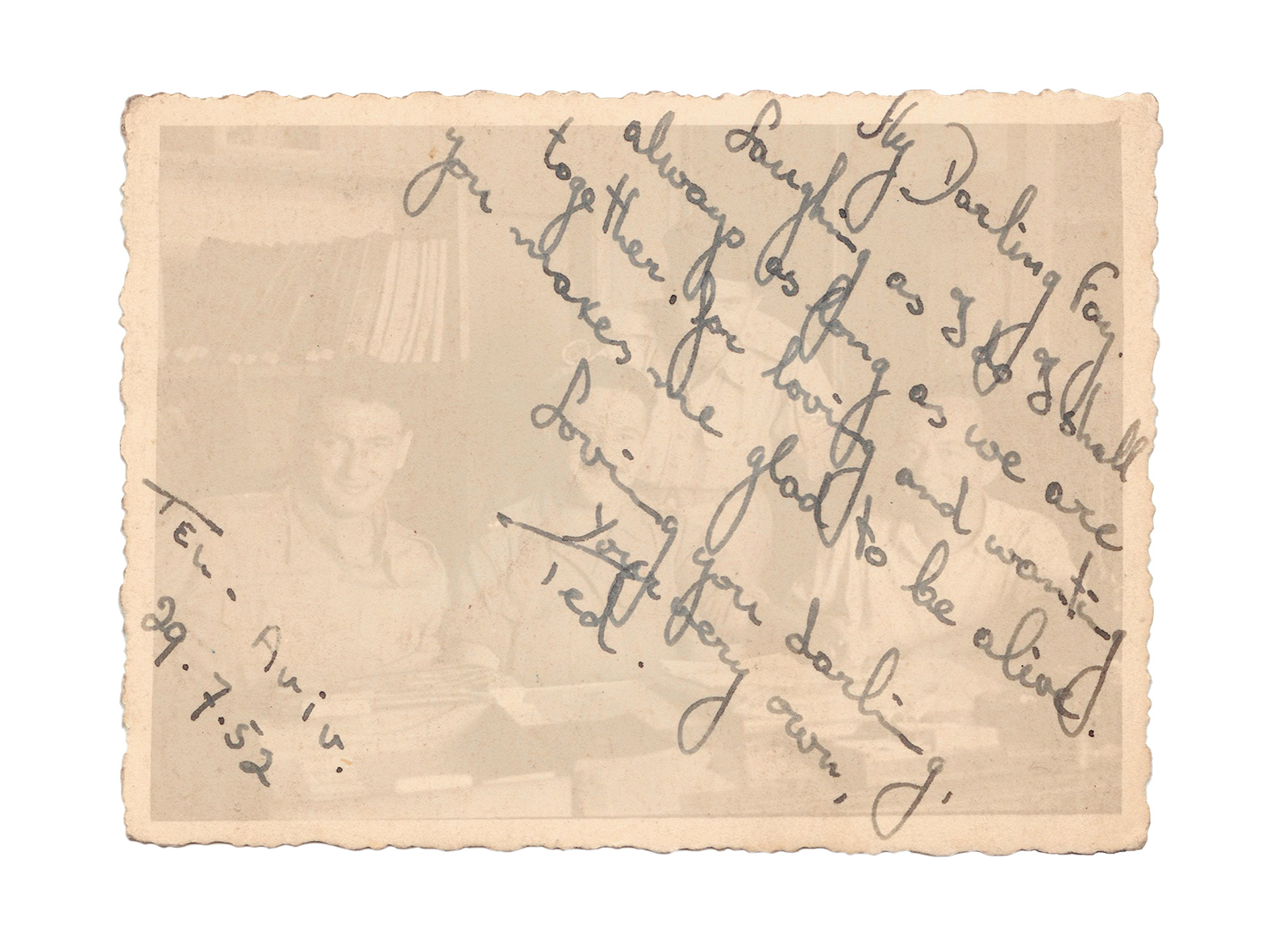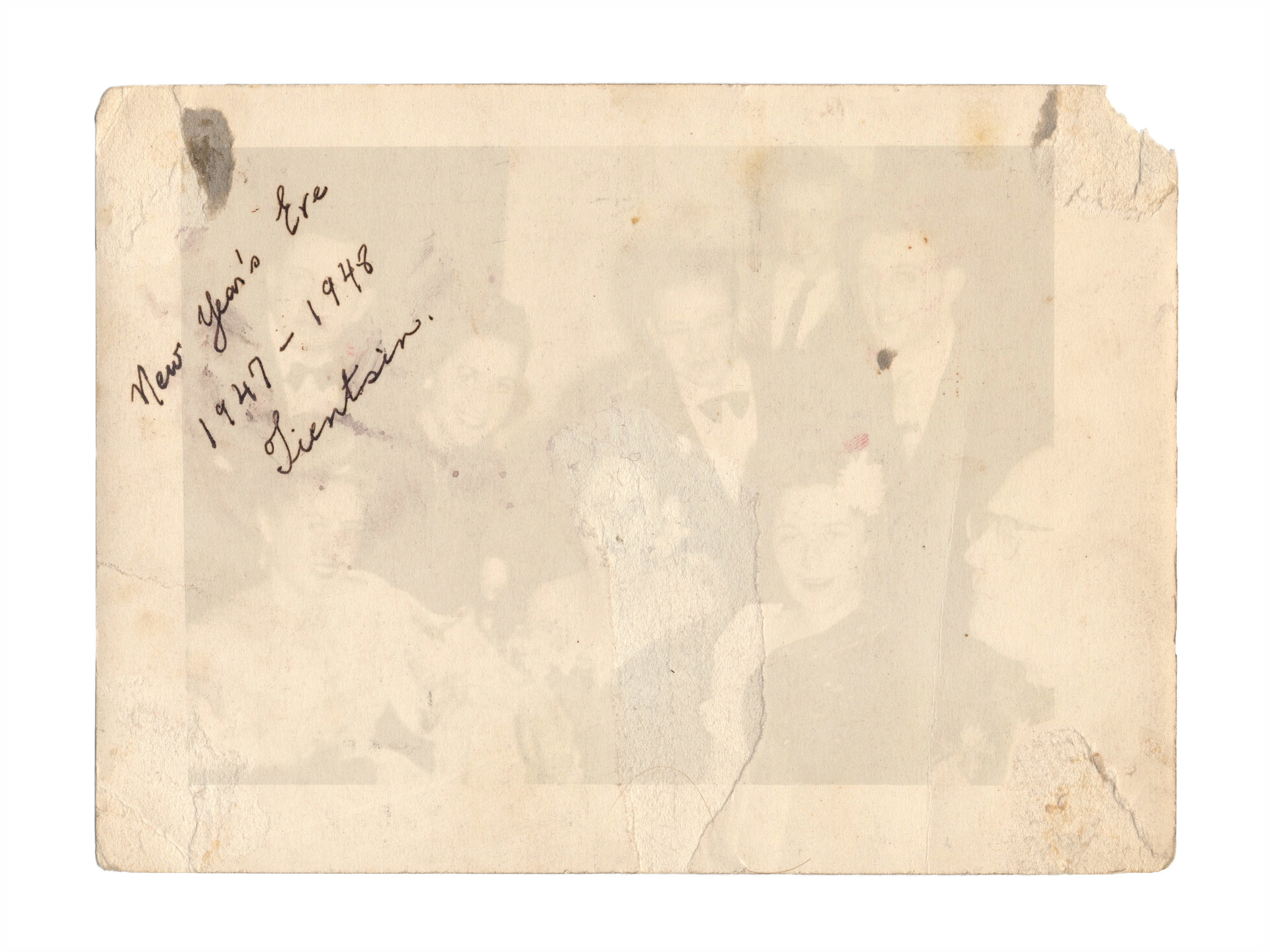DEAR FUSIA
A SOLO EXHIBITION BY RUTH ROSENGARTEN IN ASSOCIATION WITH VIAD
10 October – 3 November, 2016 | Hosted by the South African Research Chair in South African Art and Visual Culture, University of Johannesburg, 33 Twickenham Ave, Auckland Park, Johannesburg
DEAR FUSIA
Dear Fusia is an ongoing body of work using photographs that Rosengarten kept from her deceased mother’s belongings. The artist reflects on her fascination with the findings, considering them “as time capsules … holding long-vanished moments in my own pre-history”. While Rosengarten presents the photograph as a material object, she simultaneously explores its ephemeral nature and the tensions of time, space and memories it embodies. In superimposing the ghostly en face image over its manifest verso content, Rosengarten creates a new object through which she attempts to acquaint both herself and the viewer with the intimacy of the private archive and its potential narratives.
Artist’s statement
Dear Fusia is a body of work made from found photographs, in this case a stash rescued from a cardboard box in my mother’s bedroom, just after she died. The potential of these photographs as time capsules immediately fascinated me, holding long-vanished moments in my own pre-history. They also hint tangentially at broad historical upheavals: the world my mother inhabited as a child was buffeted and reshaped by revolution, war and mass migration. I have long felt drawn to the now quaint idea that a single photograph once stood as the unique material testimony of, and memorial to, a significant or even life-changing event. My mother’s momentous departure from China, where she had lived up to the age of twenty, is marked by one quayside snapshot.
Soon, I found myself transfixed not only by these images, but also by the frail existence of the photographs themselves as material objects. In an age of digital snapping and sharing, this notion of the photograph’s materiality has all but been lost. The verso sides of these pictures became particularly compelling. In a previous body of work titled Verso, I scanned or re-photographed, and then printed the backs of these photographs in postcard size. Accumulated en masse, their mottled painterliness had an abstract beauty, but also evinced the traces – and told the story – of the passage of these objects from hand to hand, from album to desk, from purse to shoebox. Many of the backs of these photographs bore verbal inscriptions in idioms that seemed old fashioned, written in looped scripts that have since become outmoded.
In Dear Fusia, I focus on these inscriptions and dedications. I return to my mother’s photographs, wanting to transform these ephemeral scraps into photographic objects, estranging them from their source by amplifying
them manyfold and having them printed on luxurious rag-paper. I focus on a small sub-category of photographs: those given as keepsakes, often tiny photos exchanged between my mother and her friends, her mother, her boyfriends, and finally her husband-to-be, my father.
These dedications not only authenticate an experience with the ‘I was here’ stamp of validation, but also spell out an exchange between two people. ‘Remember me,’ they say, attempting to claim their tiny corner of immortality, but in fact showing how quickly people vanish, and how, across only a couple of generations, the memory of them evaporates. ‘Who’s Harry?’ I wonder, ‘Who’s Isa? I’ll never know.
The photographs track one person’s geographic dislocation, over several decades – from China to Israel to South Africa – and with it, the morphing of her name from the Russian Fusia to the anglicised Fay. To focus attention on the mnemonic haunting of these readymade photographs, I have superimposed on the prevailing verso side the faintest ghost of the recto side, thus transforming both. In this conflation, the photographs tell yet another story, a nomadic narrative of material objects and affective engagements, of which each individual image is a fragmentary, constitutive part.
About Ruth Rosengarten
Born in Israel, Ruth Rosengarten has lived in England since 2001. She received degree in Fine Arts at the University of the Witwatersrand, Johannesburg, and Ph.D in History of Art at the Courtauld Institute, London. Her studio practice for some years now has focused on drawing and photography, while in her recent theoretical work, she has explored concerns with memory and the archive in contemporary art, and images of ageing and dying in contemporary photographic practice. Her current research is focused on ‘evocative objects.’ Rosengarten lived for twenty years in Lisbon, where alongside her studio practice, she was engaged with both art history and art criticism, teaching on various undergraduate and postgraduate courses and writing for several weekly and monthly publications. She has exhibited and published widely, as well as curating several large exhibitions, the most recent of which was Between Memory and Archive at the Museu Colecção Berardo, Lisbon, in 2013. She is a Research Associate at the Visual Identities in Art & Design Research Centre, University of Johannesburg.
For more information on the artist please visit: www.ruthrosengarten.com

